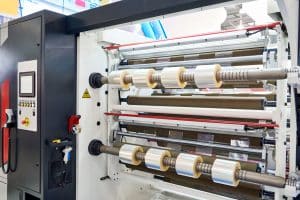When it comes to contract packaging, quality and reliability are paramount. However, how can businesses ensure these high standards are consistently met? The answer often lies in ISO certifications. At Pepin Manufacturing, we view ISO certifications not just as stamps of approval but as cornerstones of trust and accountability that guide everything we do.
ISO certifications serve as internationally recognized standards that showcase a company’s commitment to safety, efficiency, and quality. For industries requiring precise, consistent, and dependable packaging solutions, these certifications provide peace of mind while ensuring compliance with global regulations. But why are ISO certifications so essential in medical and industrial contract packaging? Let’s break it down.
What Are ISO Certifications?
ISO, short for the International Organization for Standardization, develops and publishes standards that apply to a wide range of industries and processes. These standards are designed to ensure organizations adhere to best practices in delivering safe and superior-quality products.
Some critical ISO standards relevant to contract packaging include:
- ISO 9001: Focuses on quality management systems and consistent performance to meet client and regulatory needs.
- ISO 13485: Primarily applied to medical devices, this certification ensures sterile processes, risk management, and compliance with regulatory requirements.
For businesses that depend on effective packaging solutions, these certifications function as a seal of confidence that every process meets stringent quality benchmarks.
Why ISO Certifications Are Essential in Contract Packaging
1. Mitigating Risks and Ensuring Product Safety
Mistakes in packaging can lead to significant consequences. For example:
- Contamination in medical packaging could harm patients.
- Flawed industrial packaging might damage goods during shipping.
ISO standards play a vital role in identifying and reducing these risks. Certifications like ISO 13485 require companies to implement rigorous risk assessment and management protocols. Steps like raw material selection, process monitoring, and final inspections are carefully scrutinized, leaving minimal room for error. This ensures packaging meets the exacting standards of industries where quality and safety are non-negotiable.
2. Regulatory Compliance Made Easier
Medical and industrial sectors operate under heavy regulation. Packaging for medical devices, pharmaceuticals, or hazardous materials must adhere to specific laws and safety requirements. ISO certifications provide a roadmap for managing these complexities.
For instance, ISO 13485 aligns with regulatory processes in the medical field. By following this standard, businesses can confirm that compliance with local and international laws has been built into every step of the supply chain.
Instead of worrying about audits or penalties, organizations can be assured their operations are aligned with or exceed required regulations. ISO standards can act as a trusted safeguard against legal complications.
3. Consistent Quality Across Every Project
Packaging consistency is critical. Whether it’s a sterile container for surgical equipment or protective packaging for fragile electronics, customers expect the same high-quality output every time. ISO guidelines ensure standardized procedures for production and inspection.
ISO 9001 is particularly focused on this aspect. It emphasizes replicable processes that eliminate variation in product quality. These certifications create a disciplined approach where each step of packaging is controlled, measured, and refined. For manufacturing facilities like ours, this ensures precision and reliability regardless of production volume.
4. Supporting Industry Innovation
Having ISO standards in place fosters an environment of continuous improvement. Certifications require ongoing audits and evaluations, forcing companies to regularly review and enhance their processes. With this framework, teams can stay ahead of technological advances and evolving market demands.
For example, ISO 14001 pushes for the adoption of sustainable practices, encouraging the use of eco-friendly materials and waste reduction methods in packaging designs. Industries seeking to create environmentally conscious packaging solutions can look to ISO standards as a tool for innovation.
5. Building Confidence with Clients and Stakeholders
ISO certifications act as a formal assurance that an organization operates at the highest international standards. For clients and partners, this builds trust. Knowing that a product was packaged under ISO-certified systems demonstrates a commitment to accountability and excellence.
For example, a buyer in the medical field will feel reassured that packaging conforms to sterility and safety requirements. At the same time, an industrial client will know that durability and environmental factors have been carefully considered.
6. Supporting Global Market Competitiveness
ISO certifications are globally recognized. They provide companies a competitive advantage when entering international markets. For industries like medical equipment manufacturing, where intercontinental distribution is common, ISO standards validate that packaging meets regulatory requirements worldwide.
Whether your product is heading to a hospital in Germany or a factory in Canada, ISO standards ensure your packaging is ready for global distribution without extra approvals or modifications.
How ISO Standards Address Industry-Specific Packaging Needs
Medical Industry
Medical packaging must balance sterility, durability, and precision. Improperly packaged medical devices or supplies can lead to contamination, putting patient safety at risk. For instance, sterile wound care products or diagnostic kits rely on secure, tamper-proof packaging.
ISO standards like ISO 13485 ensure sterility, risk management, and consistent traceability. Traceability becomes particularly critical when medical recalls are necessary. Detailed tracking mechanisms set by ISO guidelines make it possible to identify the source of faults and rectify them quickly.
Industrial Industry
For the industrial sector, packaging requirements often focus on strength and sustainability. Items must arrive intact, regardless of size or weight. Furthermore, with rising environmental concerns, businesses are pressured to minimize their use of non-recyclable materials.
ISO certifications like ISO 9001 and ISO 14001 ensure both durability and sustainability. For instance, technical guidelines under these certifications demand packaging suitable for long-distance shipping while eliminating unnecessary waste.
The Industry Standards That Set Pepin Manufacturing Apart
At Pepin Manufacturing, we take immense pride in adhering to key industry standards in addition to ISO certifications. These standards ensure every product we touch meets the highest expectations in quality, safety, and sustainability. Here’s what we follow:
- ANSI: American National Standards Institute, ensuring consistent technical practices.
- ASTM: American Society for Testing and Materials, providing essential benchmarks for material quality.
- FDA: Food and Drug Administration, making sure medical packaging adheres to the U.S.’s strict health guidelines.
- ISO: International Organization for Standardization, implementing global best practices for packaging.
- TS: Technical Specifications, offering added precision for industrial and medical contract packaging projects. We require technical data sheets and technical drawings to ensure we have the correct products and specifications before we begin your project.
These standards not only show our dedication to quality and safety; they reflect our mission to go above and beyond in supporting our clients with packaging solutions that make a meaningful difference.

Partnering With Excellence
While ISO certifications are vital to maintaining the integrity of your products, they also enable us to drive excellence at every stage of the packaging process. By adhering to these internationally recognized benchmarks, Pepin Manufacturing is uniquely equipped to serve industries where precision and reliability are non-negotiable.
From sterile wound care products to sustainable industrial packaging, our standards and certifications ensure quality at every step. If you’re interested in learning more about how we apply these global practices, don’t hesitate to reach out online or by calling 800-291-6506. At Pepin Manufacturing, we’re committed to exceeding your expectations, one perfectly packaged product at a time.





